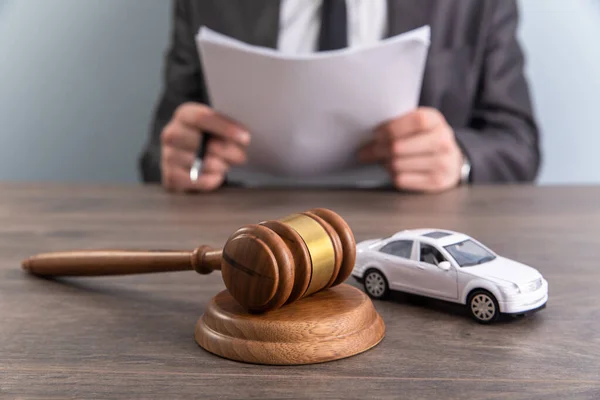Understanding Lemon Law Rights: Your Essential Handbook For Californian Car Owners
Embarking on the journey of purchasing a new car is often accompanied by a sense of excitement and anticipation. However, when the vehicle that once symbolized freedom and reliability turns out to be plagued by persistent issues, the joy can quickly turn into frustration.
In this comprehensive handbook, we delve into the intricacies of the Lemon Law, demystifying its provisions and empowering Californian car owners with the knowledge needed to navigate the challenges of dealing with a lemon.
From understanding the basics to navigating the legal terrain, this guide aims to be your go-to resource in asserting your rights and seeking recourse when your dream car becomes a recurring nightmare. Welcome to the essential handbook on Understanding Lemon Law Rights for Californian Car Owners. McMillan Law Group will guide you in legal counsel.
What is the Lemon Law?
Enacted to protect consumers from defective vehicles, the Lemon Law provides recourse for those who find themselves repeatedly facing significant issues with their newly purchased or leased cars. In California, the Lemon Law is contained within the Song-Beverly Consumer Warranty Act. This law applies to both new and used vehicles that are sold or leased with a warranty.

How Does the Lemon Law Work?
Under the Lemon Law, if your vehicle experiences substantial defects or issues that persist after a reasonable number of repair attempts, the manufacturer may be obligated to repurchase or replace the vehicle. These defects must be covered under the warranty, and they must impair the vehicle's use, value, or safety.
Key Provisions of the Lemon Law
- The Lemon Law Presumption: If your vehicle experiences issues that substantially impair its use, value, or safety within the first 18 months or 18,000 miles (whichever comes first), and the manufacturer or authorized dealer fails to repair the problem after a reasonable number of attempts, the Lemon Law presumption arises. This presumption shifts the burden to the manufacturer to prove that the vehicle does not qualify as a lemon.
- The Lemon Law Rights Period: The Lemon Law covers defects that occur within the duration of the manufacturer's original warranty, typically three years or 36,000 miles.
- The Reasonable Number of Repair Attempts: California's Lemon Law specifies that a "reasonable number of repair attempts" is typically considered to be four or more attempts to fix the same issue, or two or more attempts for defects that could cause serious injury or death.
Additional Considerations
- Manufacturer's Obligations: If your vehicle is determined to be a lemon, the manufacturer is required to provide you with a refund of the purchase price or a replacement vehicle, as well as reimburse you for any incidental costs such as towing expenses or rental car fees.
- Arbitration: Some manufacturers may offer arbitration programs as an alternative dispute resolution mechanism. While participation in arbitration is voluntary for consumers, it may be worth considering as a means of resolving disputes more quickly and informally.
- Legal Remedies: If your Lemon Law claim is successful, you may be entitled to recover attorney's fees and costs, in addition to the refund or replacement vehicle provided by the manufacturer.
Steps to Take If You Suspect Your Vehicle is a Lemon
Document Issues Thoroughly:
Begin by meticulously documenting each issue you encounter with your vehicle. Keep a detailed record of dates, descriptions of problems, and any attempts made by authorized dealerships or repair centers to address these issues. Accurate documentation serves as critical evidence when pursuing a Lemon Law claim.

Notify the Manufacturer in Writing:
Once you suspect your vehicle may be a lemon, formally notify the manufacturer in writing about the persistent defects. Clearly outline the problems, specify the number of repair attempts, and detail the impact on the vehicle's use, value, or safety. This notification creates a paper trail, providing transparency and initiating the manufacturer's obligation to address the issues.
Consult with a Lemon Law Attorney:
Seek legal advice from an attorney specializing in Lemon Law cases. An experienced attorney can evaluate the merits of your situation, guide you through the legal process, and ensure that you are aware of your rights. They can also assist in communicating with the manufacturer and provide representation if your case proceeds to arbitration or court.
Continue Pursuing Repairs:
Even after notifying the manufacturer, continue to pursue repairs through authorized dealerships. Ensure that every repair attempt is thoroughly documented, including copies of repair orders, invoices, and any communication with service personnel. A persistent effort to address the issues reinforces your position and strengthens your case under the Lemon Law.
Explore Alternative Dispute Resolution (ADR):
Some manufacturers offer Alternative Dispute Resolution (ADR) programs as an informal and expedited way to resolve lemon law disputes. While participation is voluntary, it may be a quicker alternative to litigation. However, carefully weigh the pros and cons, as the decision reached through ADR might not always be favorable. Consult with your attorney before opting for this route.
Know Your Rights and Legal Remedies:
Educate yourself on the specifics of the Lemon Law in your state, particularly California in this context. Understand the Lemon Law presumption period, the reasonable number of repair attempts, and the manufacturer's obligations. If your claim is successful, you may be entitled to a refund, replacement vehicle, and reimbursement for associated costs. Awareness of your rights empowers you during negotiations and legal proceedings.
Taking these steps systematically and with diligence can significantly enhance your chances of a successful Lemon Law claim, ensuring that you receive the appropriate remedy for the persistent issues plaguing your vehicle.

